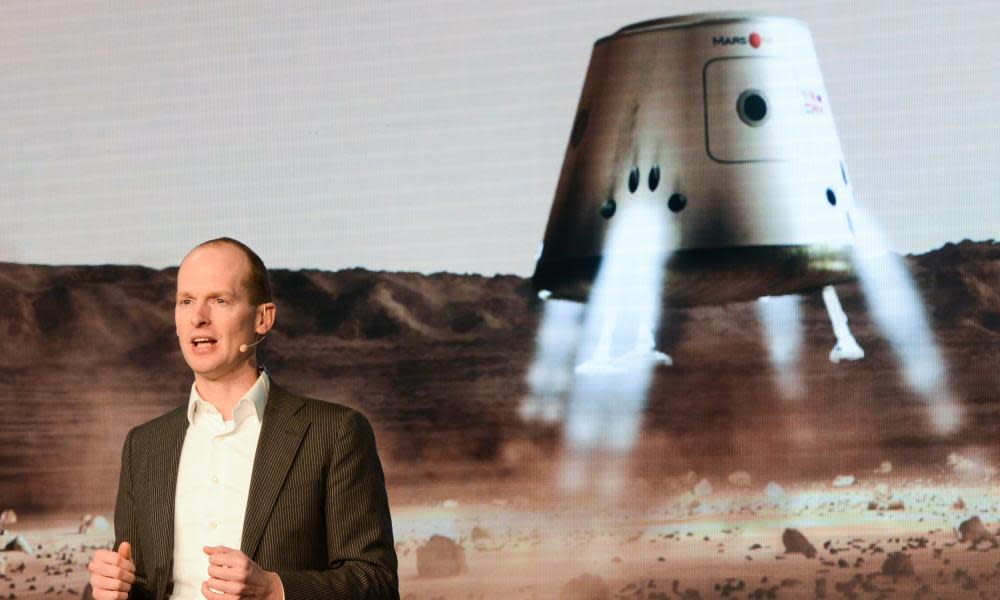Space, the final frontier for those hoping to part us from our money

If you were hoping to escape Brexit Britain with a one-way ticket to Mars, I am afraid you’re out of luck. Mars One Ventures, the company that wanted to start a permanent human settlement on the red planet in the next few years, has gone bankrupt, although its not-for-profit sister company, the Mars One Foundation, continues to operate. No doubt you are as shocked by this as I am.
A quick recap of the space saga: Mars One was launched in 2012, when the Dutch entrepreneur Bas Lansdorp decided that, instead of dealing with his midlife crisis by getting a motorcycle, he would colonise the fourth planet from the sun. How he planned to do this was questionable, as Mars One didn’t make any space technology. It was a bit like the Brexit ferry firm that didn’t own any ferries, but on an interplanetary scale. Also unclear was how he thought Mars One could start a space colony on a budget of just $6bn; Nasa has estimated that a manned mission to Mars would cost between $80bn and $100bn (£62bn and £78bn). Mind you, Nasa clearly wasn’t doing the sort of galaxy-brain thinking Lansdorp was: the entrepreneur had the brilliant idea of making a reality show out of the colonisation process to fund the endeavour. After all, who wouldn’t want to watch a space-based mashup of Love Island and Lord of the Flies?
Mars One’s ambitions were met with scepticism, with many calling it a suicide mission. Nevertheless, thousands of people paid up to $75 to apply for the opportunity to live out their days on Mars, and in 2016 Mars One Ventures was acquired by a Swiss financial company for a reported €87m.
You’ve got to hand it to Lansdorp. He had a ludicrous idea and ran with it; for almost seven years, large numbers of people bought into his vision. But perhaps this isn’t all that surprising. We live in a time where, to quote Silicon Valley’s favourite mantra, we are encouraged to “fake it till we make it”, and qualifications aren’t nearly as important as chutzpah. While snake-oil salesmen may have been around for ever, they seem particularly prevalent at the moment. And some schemes go beyond the fantastical and shade into the criminal. This is partly thanks to the internet; as Maria Konnikova wrote in her 2016 book The Confidence Game: “The whirlwind advance of technology heralds a new golden age of the grift. Cons thrive in times of transition and fast change.”
Even transition and fast change can’t prevent a completely unworkable idea from being found out. Elizabeth Holmes had a singularly rude awakening; last year, the founder of the blood-testing startup Theranos was charged with criminal fraud for making false claims about the efficacy of the company’s technology, which she denies. Amazingly, Theranos raised more than $700m from investors and reached a valuation of $9bn despite there being no clear evidence its product worked. This was largely thanks to Holmes, who styled herself like Steve Jobs and reportedly even faked a baritone voice to appear more convincing. Billy McFarland, the organiser of the failed Fyre festival, has also faced legal repercussions for his overly ambitious ideas; in 2018 he pleaded guilty to lying to investors and was sentenced to six years in prison.
While McFarland and Holmes have been disgraced, we remain in a golden age of grift. No shame and lots of confidence will get you anywhere – just look at Donald Trump.

 Yahoo News
Yahoo News 
